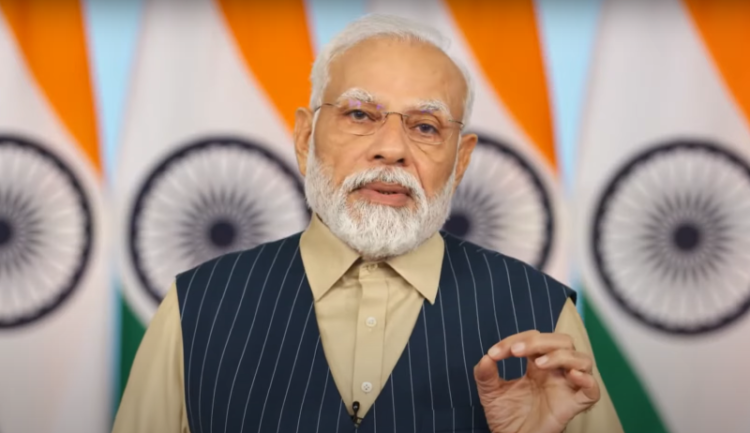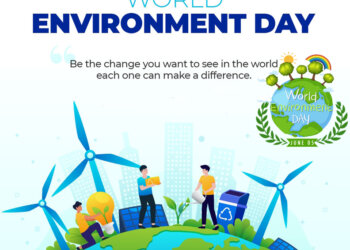Prime Minister Narendra Modi rejected Pakistan and China’s objections to holding G20 meetings in Jammu and Kashmir on Sunday. In an interview with PTI, the prime minister stated that holding meetings in all parts of the country is normal.
“Such a question would be valid if we had refrained from conducting meetings in those venues. Ours is such a vast, beautiful and diverse nation. When G20 meetings are happening, isn’t it natural that meetings will be held in every part of our country”, he said.
PM Modi spoke to the news agency about a variety of topics, including the G20 summit, terrorism, India’s economic progress, the ‘Sabka Saath Sabka Vikas’ model, and so on. Here are the five most important lessons from the prime minister’s interview.
1. Prime Minister Narendra Modi spoke about India’s G20 leadership, tying it to its efforts to combat the epidemic, human-centered development approach, and vaccine drive.”India’s experience taught us that a human-centered approach is effective even in times of crisis. The world recognized and welcomed India’s response, which involved a clear and organized approach, direct assistance to the most vulnerable through technology, the development of vaccines, the organization of the world’s largest vaccine campaign, and the sharing of medicines and vaccines with nearly 150 countries.”
“By the time India became the president of G20, our words and vision for the world were not being taken merely as ideas but as a roadmap for the future”, Modi added.
2. PM Modi spoke of debt crisis as a matter of great concern for the world.
“The debt crisis is indeed a matter of great concern for the world, especially developing countries. Citizens from different countries are keenly following the decisions being taken by governments in this regard. There are some appreciable results too”, he said,
“First, countries that are going through debt crisis or have gone through it, have begun to give greater importance to financial discipline. Second, others who have seen some countries facing tough times due to the debt crisis are conscious of avoiding the same missteps,” Modi said.
3. PM Modi also advocated for UN reforms, claiming that a mid-century approach cannot serve the globe in the twenty-first century. “Today’s world is multipolar, and institutions are critical for a rules-based order that is fair and sensitive to all concerns.” However, institutions can only remain relevant if they evolve with the times, according to the prime minister.
4. Prime Minister Modi stated that India will become a developed nation by 2047, while criticizing the previous UPA government for “lack of faith” in India’s capabilities. “Unfortunately, in the past, there used to be an attitude of getting things done right here in Delhi, in and around Vigyan Bhavan. Perhaps because it was an easy way out. Or perhaps because those in power lacked confidence in the people of different parts of the country to successfully execute plans of such scale”, he said.
5. During the conversation, Prime Minister Modi discussed terrorism and how it was leveraging technology to radicalize and profit from developing digital avenues such as the dark web, metaverse, and crypto platforms. “Cyber terrorism, online radicalisation, and the use of networked platforms to move funds from money laundering to drugs and terrorism – these are just the tip of the iceberg,” he said.
6. Regarding the Ukraine issue, Prime Minister Modi stated that “dialogue” and “diplomacy” are the only ways to address various crises in various regions.
7. The prime minister spoke about India’s skilled hands and his government’s ‘Sabka Saath, Sabka Vikas’ model. Modi said, “For a long time, people perceived India as a nation of over one billion hungry stomachs. But now, we see India as a nation of over one billion aspirational minds, more than two billion skilled hands, and hundreds of millions of young people. “The Sabka Saath Sabka Vikas model that has shown the way in India can also be a guiding principle for the welfare of the world”, the prime minister added.
8. The prime minister made a veiled remark on populist policies implemented by several state governments in the country. “Populism may produce political results in the short term, but it comes at a high social and economic cost in the long run.” “Those who suffer the most are frequently the poorest and most vulnerable,” he remarked.
9. According to the Prime Minister, corruption, casteism, and communalism would have no place in India’s national life. “Our people’s quality of life will be on par with the best countries in the world.” Most significantly, we will accomplish all of this while respecting both nature and culture,” Modi stated.
10. Modi attributed his government with a decisive mandate, which he claimed resulted to “a stable government, predictable policies and clarity in the overall direction”.
Source:HT







 Finance
Finance







